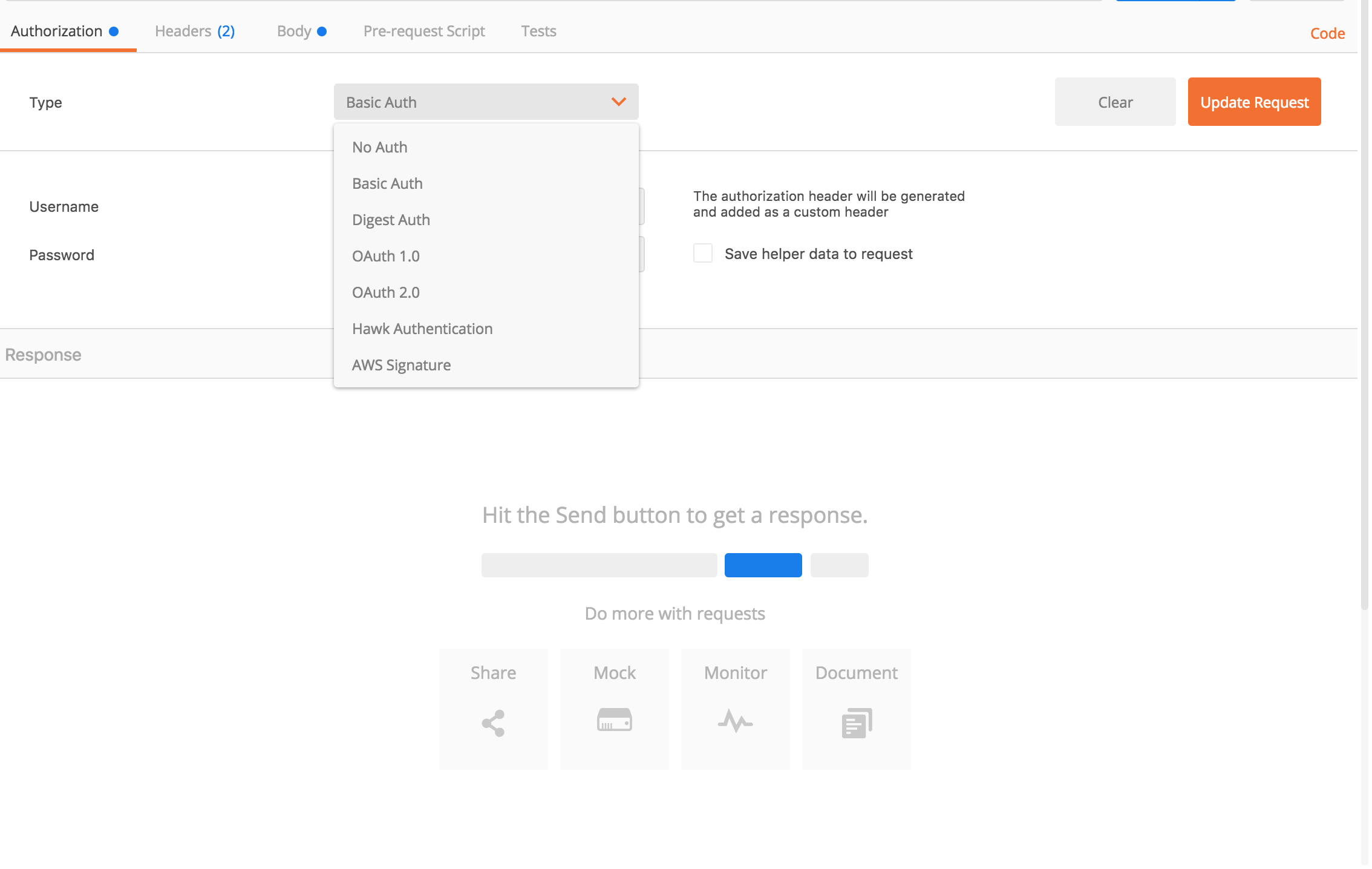I saw details about OAuth2 in Karate Demo. Can you also provide how to implement Basic Auth?
How to implement Basic Auth using Karate?
Yes, this JS function is all you need (basic-auth.js):
function(creds) {
var temp = creds.username + ':' + creds.password;
var Base64 = Java.type('java.util.Base64');
var encoded = Base64.getEncoder().encodeToString(temp.getBytes());
return 'Basic ' + encoded;
}
And then use this function to build the value of the Authorization header:
* header Authorization = call read('basic-auth.js') { username: 'john', password: 'secret' }
Refer to the docs here: https://github.com/intuit/karate#http-basic-authentication-example
For OAuth or "login form" kinds of flows, see: https://mcmap.net/q/1770288/-how-to-setup-oauth-1-0-authentication-with-karate-for-twitter-duplicate and https://mcmap.net/q/1770289/-does-karate-dsl-framework-have-the-capability-to-pass-a-post-request-as-a-url-encoded-format
@PeteLoggie thanks, I edited the answer. this happened when we changed the JS engine in 1.X: github.com/intuit/karate/wiki/… –
Nonrestrictive
Sry but what’s creds in above? –
Ridglea
@avdheshmaurya and for anyone else who wonders, the
creds refers to the last parameter on the * header Authorization = call read('basic-auth.js') {username: 'john', password: 'secret'} line. –
Olen © 2022 - 2024 — McMap. All rights reserved.


var encoded = Base64.getEncoder().encodeToString(temp.bytes);to:var encoded = Base64.getEncoder().encodeToString(temp.getBytes());– Trailer